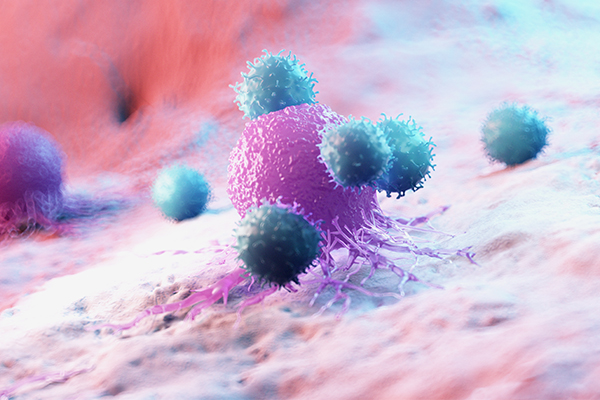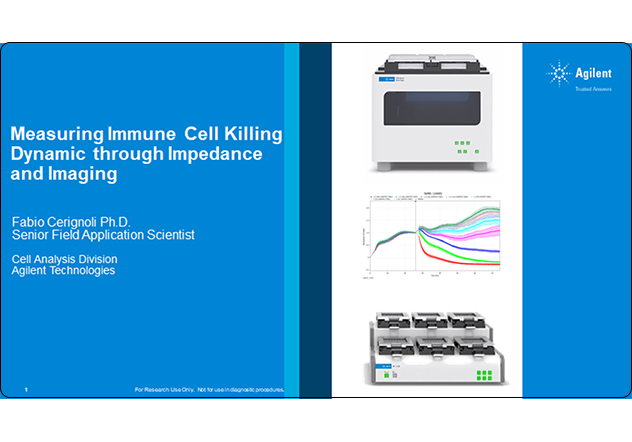Investigating the Dynamics of Immune Cell-Mediated Killing in Real Time
In this webinar, Dr. Fabio Cerignoli, Field Application Scientist, will highlight a simple yet comprehensive workflow to investigate cell-mediated cytolysis.
Watch the webinar on demand to learn:
- Important factors to consider when designing immune cell-mediated cytolysis experiments to better predict in vivo outcomes
- Understanding specific cellular phenomena from kinetic data captured and analyzed with the xCELLigence RTCA eSight platform and software
- Advantages of combining real time impedance and live cell imaging in a single immuno-oncology workflow
Abstract
The cytolytic activity of immune cells toward cancer cells is finely regulated through several pathways and receptors. Although end point assays have been routinely used to measure cell killing, they have intrinsic limitations which led to new in vitro potency assays that are more sensitive and better predictive of in vivo outcomes.
The introduction of kinetic approaches has tremendously expanded the dynamic range and resolution of potency determination, allowing the development of safer drugs. In this webinar, Dr. Cerignoli will provide an overview of the Agilent xCELLigence Real Time Cell Analysis technology and its utility in cell mediated cytolysis. He will describe the advantages and limitations of impedance and imaging alone approaches and highlight the importance of comprehensive multiparametric analysis.
About the Speaker
Dr. Cerignoli is covering the role of Senior Field Application Scientist for the xCELLigence RTCA platform at Agilent Technologies, where he is involved in developing new tools and reagents and in validating the xCELLigence technology across multiple cellular models. He received his Ph.D. in Molecular Pathology from the University of Rome "La Sapienza" in Italy and moved to San Diego to study signal transduction and stem cell differentiation at the Sanford Burnham Medical Research Institute. Before joining Agilent Technologies, Dr. Cerignoli worked with other San Diego-based Biotechnology Companies where he was awarded several NIH small business grants to develop new tools to study compound-mediated cardiotoxicity


